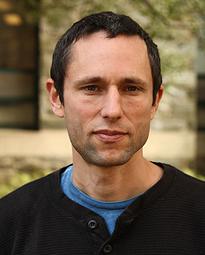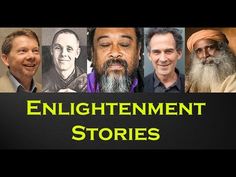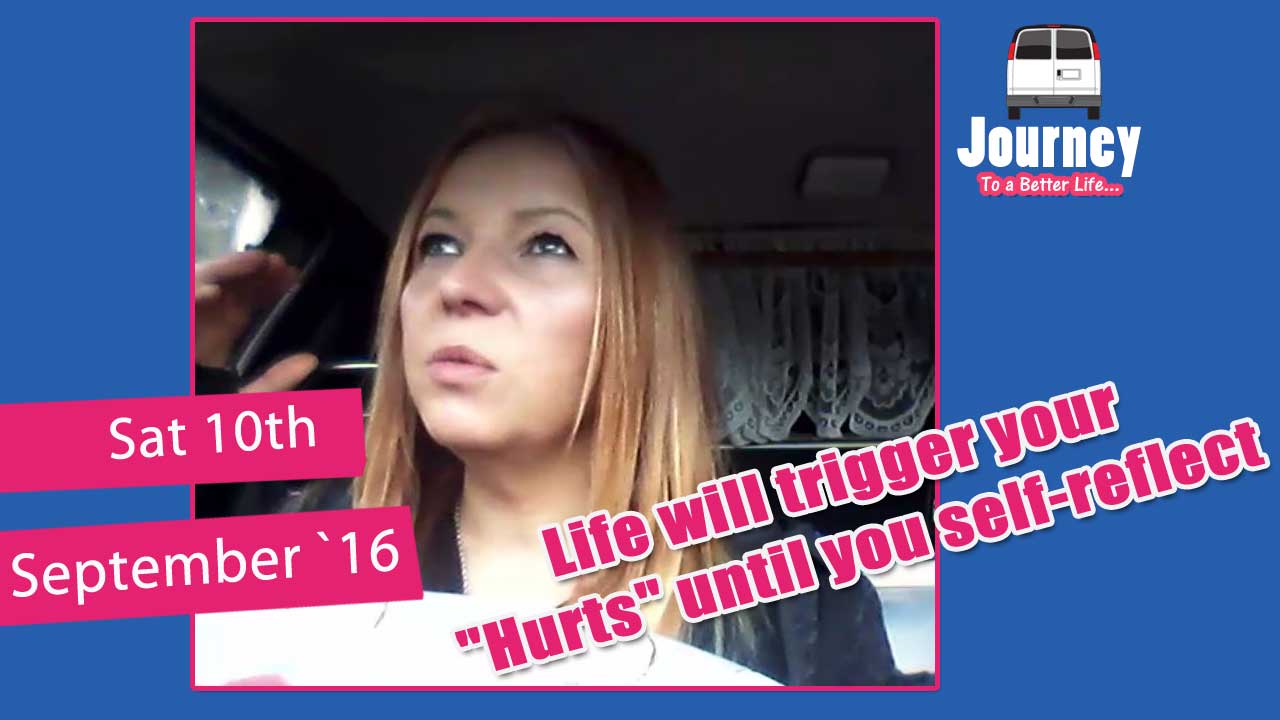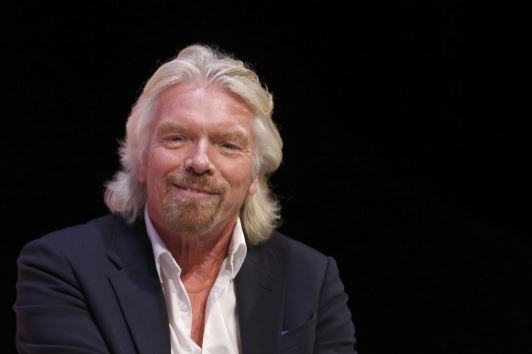A Radical Shift: Transformation of global consciousness (Charles Eisenstein interview)

A radical shift – takeaways from a Charles Eisenstein interview about transformation of global consciousness
Just listened to an hour and a half interview with Charles Eisenstein and I transcribed some parts of the conversation for my own notes.
Charles went through a long period of crisis in his early 20’s where it became excruciating to do work that he didn’t care about. I relate to him a lot as I’ve been through the same thing. That resistance, that even though it’s completely impractical and irrational to quit, you just can’t do it anymore. He now focuses his interests towards exploring the boundaries of what is “possible” according to our received beliefs, received habits, received technologies, and received ways of knowing. He has a vision for humanity, and has ideas on how humanity will take the next step to our evolution and awakening consciousness on a global scale.
Here are the notes from the interview (not all verbatim as I was typing as I was listening & may of misheard or substituted some words based on my own conditioned beliefs, what my mind was receiving, and how quickly I was typing my way through the 1.5 hr interview):
A radical shift. No optimism can be authentic that doesn’t encompass the depths of despair.
If someone is describing an optimistic view of the world, others think that they just don’t quite get it – they don’t understand how bad things are, or the depths of the different crisis, and as a result, you’re not gonna be very satisfied with their optimism.
Any one of the crisis that face our civilization is probably worse than almost anybody dares to admit. Transformation happens almost in no other way that to be in a crisis that reaches an extreme, that really brings the world down.
On a personal level, I don’t see people really changing much until the old way stops working completely and they are expelled or burst into a new way of being. And I think the same thing is happening to humanity today. As individuals it’s happening to us in various ways.
I was expelled out and spent quite a number of years with no idea what my calling was, wandering. And then eventually it emerged. It was a gift to me that I’m doing what I’m doing today.
Hey, I’m trapped in this job, why can’t I muster the courage? How do I become good enough? And that’s where the real revolution lies. The deep revolution; we are no longer striving to overcome nature. Most people resonate with that on a collective level, and don’t valorize humanities conquest of nature. But on a personal level, a lot of the visible habits, of that mythology live on, that goodness of virtue comes somehow by overcoming yourself.
I think that’s a process that we all need to go through, both individually and culturally via despair is really built into our world view on a very, very deep level, not only that, you see the crisis that seem too big to ever be solved. Our very understanding itself of the universe that comes from classical physics & classical biology (which is becoming obsolete, but it’s intuitions are still with us), that essentially we’re these separate discreet beings operating in a universe of force of mass, and to change anything you have to exert the force.
I’m just one person – I cannot make a difference
But, here we are in a world where the force is on side of institutions that are destroying the planet, we cant possibly overcome them with force, and no matter what everybody else does, I’m just one little person, so what I do doesn’t matter. I can recycle all day and I can vote for all the right candidates, I can do anything but I’m just one person.
Built into the mythology answers the question “Who Am I” and says that you’re a bubble of psychology in a flesh robot.
Despair is built into that. Powerlessness, perilous, and paralysis are all built into that. And this is something that the mind has no choice but to accept. But again, it’s something that the heart knows better.
The Heart Knows Better
The heart knows that taking a puppy off the street, and taking care of it is a significant act, even though the logic of separation cannot possibly explain how that is going to help anybody. Or sitting in a hospice with an old person. Like what good’s that going to do?
Rationally speaking, you should not waste your time and energy, that person is going to die anyway, that’s not going to have any repercussions on the world – you should spend your time with children.
But the heart understands, that deep down we know that these are significant acts. And that is illogical. So profoundly irrational from the logic of the ‘separate self’. But that is becoming obsolete. And we’re beginning to understand what the mystics have always been trying to tell us.
Every being in the universe is part of me
That we’re not these separate selves, that every being in the universe is part of me and vice versa.
Therefore of course, whatever I do, will affect the entire cosmos.
And every act is significant.
And this transition of ideology, the new physics, the new biology – every field is going through this transition.
This is helping to end the struggle between heart and mind.
That the things that are necessary to heal the planet are insane.
Now that is becoming no longer true.
Unfortunately our institutions such as money haven’t re-aligned themselves to fit this new understanding, and that’s the transition we are in right now.
Where did the idea of spirit come from or high consciousness come from? The less material it is, the better it is. You could ask yourself, as far as high vibrations go.. is a piccolo better than a bassoon? Each one of us is a symphony of vibrations, high and low. That can be harmonious or disharmonious to varying degrees. And I think what’s happening to humanity now is the symphony is entering a new movement.
This transition is a group transition; Enlightenment is not a solo ride
The transition that we’re undergoing now; it’s not something that some people make it before others.. and can teach them how to do it.. but it’s a group transition, where each person, explores part of this territory that we’re entering, and wanders around in it and falls into pits, and takes long detours and learns the territory and then shares that experience with others who are also wandering the territory and we gradually come to understand it.
And, also because of these institutions that pull us back, and make us afraid and paralyze us.
We need each other to abide in the understanding of our connective-ness and therefore of our power to effect the universe, to affect the world. We need each other, it’s not a transition that can happen alone and you can say enlightenment is a group project.
Yeah I’m so enlightened, I could be in Nirvana but because I want to be of service because of all beings, I’m gonna hang out here for a while and self-sacrificing. It’s really just simply understanding … I can’t abide in Nirvana if everybody isn’t there, because everybody is part of me and I’m part of everybody. It’s simply a realization of fact.
We need each other, on a very practical level. To remind each other that yeah, you’re not crazy for quitting the 75,000 job to take on a 16,000 job that really allows me to explore my gifts. You’re not crazy. We need help to do that.
If we’re serious about making a lasting and pro-founding transformation, we have to really care to get it right, in ways that go beyond simply a kind of tender attunment to the still small voice and the caring, hopeful, heart. There’s so much more to this and we are befriending one another in what I’m hoping will be a new stage of human culture.
But for us to enact as such that we’re really capable of doing it, it’s going to have to meet up with all the brutality and viciousness of the world, in a way that’s stronger somehow, more robust, and we have to bring ourselves to this with all that’s best in us, and have a capacity that enables our being with one another to really stand the test of time.
One of the things we need to do is to tell the story of the world that can be, and to believe that story, and to be able to believe it strongly enough that we can hold it on behalf of other people. And to hold those roles open for when they do jump ship, and they don’t know what’s real anymore.
And when the world falls apart, there is that feeling of vertigo, when you don’t know everything that seems so certain and secure and permanent, is revealed as nothing but vapor. And that is a very precious time, a time of unknowing. And eventually it transitions to a new stage of growth and of building, and that’s what we need to be practical about. Where you’re not just flailing around.
Like, here’s what the institution of money would look like it it reflected what’s sacred to us today. If it encouraged conservation, if it enforced sustainability, if it built communities rather than tearing it down.
We need Miracles & to Accomplish the Impossible to solve the problems of our planet
Accomplish the impossible. Doing the impossible. When you look at the extent of the crisis today. It would take a miracle to save this planet. Or to make it live-able for human beings in 100-200 years. Just the amount of radioactive waste that’s already buried and is just about to start to leak, or the amount of violence that’s gone down, the millions and millions of people who’ve witnessed their loved ones being murdered before their very eyes, the atrocities that have happened, forgiveness is beyond reasonable expectation.
But it happens.
Miracles do happen.
On a social level, it would take a miracle to have peace in the Middle East. Like I have a vision of Jews, Christians and Muslims, living peacefully in every country in the Middle East. And building a culture together. And, that would take a miracle.
It would take a miracle to re-mediate the suffering of people who are languishing in prisons today, it would take a miracle to embrace the autoimmune epidemic, the degradation of ecosystems, the death of the coral reefs.
We do not understand, we have no way to solve these problems that is practical. The climate problem. Theoretically we could start tomorrow. In 5 years we could produce one-tenth of what we produce today, and it wouldn’t even really harm our quality of life, because so much of what we use and produce doesn’t really serve human well-being. But to actually make that change, what’s politically responsible to advocate.
Well, maybe a ten percent reduction over 20 years…. but the Chinese won’t accept that so let’s go for 5%, right… etc.
When you talk about what’s idealistic and what’s practical. That depends on the audacity of our vision to some extent. If we stick to just what’s practical, then we’re lost. We need miracles.
How do we access this power, how do we do the impossible? That’s the question we have to face, because we have no choice.
We do have all the solutions. The energy crisis. Zero point energy, that kind of stuff. This isn’t even a problem either. Any disease you can name. Any of these incurable diseases. There are alternative modalities that can cure quite easily. I resonate with that point of view.
Shift of Perception
The miracle then is in the shift of perception that has to happen, for these to become no longer marginal, ridiculed or suppressed. So that’s kind of a social miracle or a psychological miracle.
But what it really comes down to is the transition.
How do we create miracles? How do we operate effectively from the expanded sense of self that we are stepping into? The connected self.
What prevents us from doing the things, not just on a social level but also on a personal level?
We know what to do, but we’re not doing it. Why is that?
What hidden habits of separation. What inner institutions are keeping us from fully stepping into our true potential?
There’s kind of an inert universe out there. To enclose our design on it. There’s no inborn design.
Aligning with the next moment of evolution
Transition is to align ourselves to receive the next moment of evolution.
What we actually have to do is Receive the vision then bow to service.
Stone age artists thought of their art in that way, they looked at the uncarved block: What is inside of this wood, that I can with my tools, uncover? They were servants to .. we would say they created it.
When we bow to service in that way, we are no longer constrained by what we know how to do. This being that wants to be born is vastly more powerful than we know how to be. And the synchronicities line up, to create changes, or to be apart of changes, to be instruments of changes. We have no way through planning and logic. The planned exercise of force. Attitude of service and humility and receiving.
The existing money system, reinforces separation, puts us in competition with each other, creates scarcity. It’s part in parcel of the story of the separate self. Money is consistent with that, it’s aligned with that. What is it about money that makes that happen? The way that money is created.
Now we’re transitioning away from the separate self, from the view of humanity as conquering nature and moving into the connective self, co-creative. We’ve decided to give not just receive. We’re becoming .. we desire to give and receive and to co-create.
These new understandings of self. New and intimate. The next stage of our evolution.
The money system based on negative interest rather than interest. Money can’t buy community. You don’t need money. Financially poor people generally have more community.
Permaculture is the Agricultural expression of the shift in being-ness
Its the agricultural expression of the shift in being-ness that’s going on. What we do to another, we are doing onto ourselves too.
Therefore you can no longer see nature as a repository of waste, but you understand that everything that you produce, has to be usable by some other life form, and be part of a circle of giving and receiving. You don’t need to mine the environment somewhere else or send agricultural wastes down a stream. Permaculture is agriculture that operates on ecological principals, and that ecology includes not just nature but it includes the human ecology too. That’s related to the economic system. Local economy. A less monetized economy.
A lot more gardens, a lot more people giving stuff to their neighbours, a lot more local production that may not be an exchange for money.
How is fear transformed?
We have this temptation to make fear the enemy, but perhaps we need to kind of trust that fear has its role too,and to trust that as we grow, fears that were once protective, then become limiting, then become obsolete. Fear keeps us safe in a certain world. Don’t worry, you’re not afraid as you think.
Our fear comes from our interpretations of stories about what’s going on in the world. Much more effective than any kind of logic or argumentation, but to in some way puncture the story bubble by doing something that just doesn’t fit into that world anymore, that’s generating the fear.
Being a living example of generosity and love. People are so used to “its all about the money”. It can be very powerful. Anyway you can diffuse the story that generates the fear, and offer a story that embodies love, its really powerful.
Visit Charles Eisenstein’s website at http://charleseisenstein.net/
Sorry that my transcription is a little scattered, I probably should’ve stopped and started a bit more, but it was a very long interview and that would’ve taken forever, so I got the ‘gist’ of most of it I think. I downloaded this interview ages ago and only have the mp3 copy which has no website url to share the interview link with, hopefully he posts the full interview on his website at a later time. In the meantime, he has a lot of videos and audios on his website already.
Also, I haven’t watched these yet, but just found these YouTube videos of Charles Eisenstein whilst looking for the original interview above and thought I’d place them here to watch this week:

Site Notifications/Chat:
- Telegram Post Updates @JourneyToABetterLife (channel)
- Telegram Chatroom @JourneyBetterLifeCHAT (say hi / share info)
- Gettr Post Updates @chesaus (like fakebook)
Videos:





